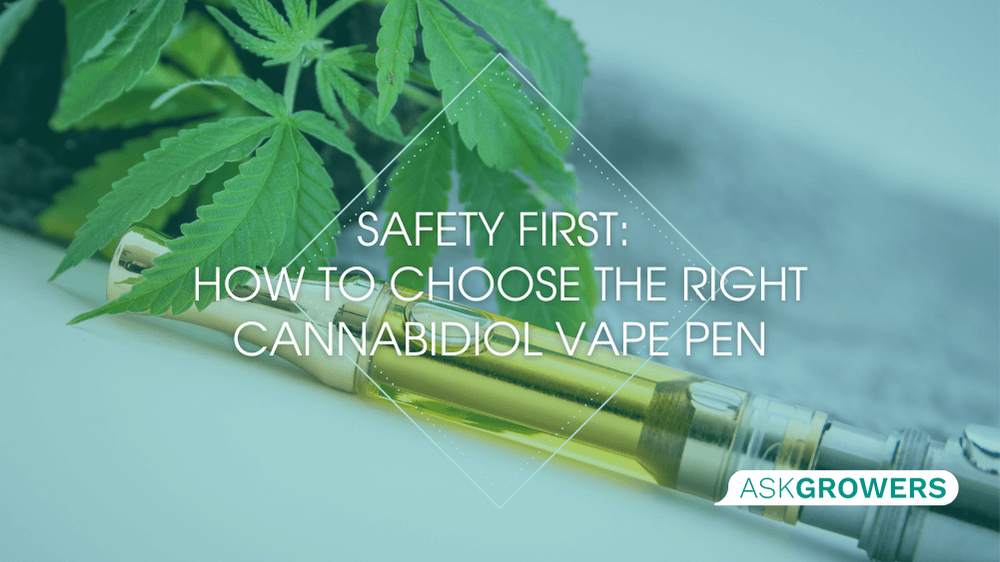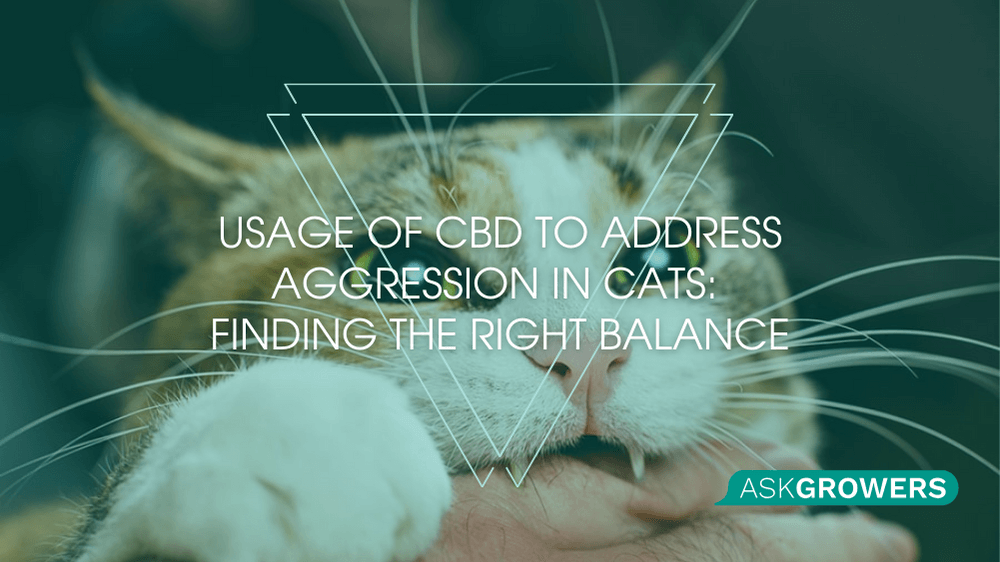A Closer Look: Is CBD Safe and Effective for Dogs' Health?

Cannabidiol, derived from non-psychoactive marijuana or hemp plants, has gained significant attention as a potential alternative for calming dogs. Hemp interacts with the endocannabinoid system in humans and animals, which plays a vital role in regulating various physiological processes. As a result, cannabis has been explored for its potential therapeutic benefits in dogs. It can do the following:
- Alleviate arthritis
- Reduce anxiety
- Promote relaxation
- Help manage cancer-related symptoms
Many canine owners are turning to pet CBD for dogs as a more natural option for managing their pets' health concerns. Still, in the United States, the legality of cannabidiol for animals varies.
While the 2018 Farm Bill legalized hemp-derived cannabidiol products with less than 0.3% THC (the psychoactive compound in marijuana), regulating it for animals is still evolving.
Some owners worry about the potential side effects and proper dosage of hemp for dogs, while others question the lack of regulatory oversight in the hemp industry. As the popularity of cannabis for dogs continues to grow, it is crucial to approach its use with caution and to advocate for more research to fully comprehend its effects on dogs' health.
By considering the concerns and conducting further studies, we can better understand whether dogs and CBD intake can indeed be a safe and effective alternative for promoting the well-being of our furry friends.

Read Also: Overview of the Best CBD Products for Pets: What Are They and How to Choose Them?
Understanding Reasons for Using CBD for Dogs
Cannabidiol interacts with the endocannabinoid system in dogs by binding to cannabinoid receptors, primarily CB1 and CB2. These receptors are distributed throughout the body and play a crucial role in regulating various physiological processes.
By interacting with these receptors, CBD medicine for dogs can modulate the endocannabinoid system activity, potentially promoting balance and well-being in dogs. Using hemp can alleviate some conditions:
- Anxiety Relief: Cannabidiol has shown promise in reducing anxiety in animals. It interacts with receptors in the endocannabinoid system, promoting a sense of relaxation and calmness.
- Pain Management: Cannabis possesses analgesic properties that can help manage pain in dogs. It interacts with receptors involved in pain perception, potentially reducing discomfort caused by conditions such as arthritis, injuries, or post-surgical recovery.
- Anti-Inflammatory Effects: Hemp's anti-inflammatory properties can aid in managing inflammation in dogs. It targets specific receptors associated with the immune response, potentially alleviating symptoms of conditions like inflammatory bowel disease, allergies, or joint inflammation in senior dogs.
- Seizure Control: CBD oil for dog seizures has gained attention for its potential anticonvulsant properties. In dogs with epilepsy or seizure disorders, cannabidiol may help reduce the frequency and severity of seizures. While research is ongoing, some pet owners have reported positive outcomes in managing their dogs' seizures with hemp.
In addition, there are also some CBD benefits for dogs, as well as disadvantages to consider before adding cannabis to your pet's diet.
| Advantages | Disadvantages |
|---|---|
| Cannabidiol may support dogs' overall well-being, including appetite, sleep, and immune function. | The hemp market for dogs is currently unregulated, making it challenging to ensure product quality and consistency. |
| Cannabis offers a natural alternative to traditional medications for calming dogs. | While rare, some dogs may experience side effects such as drowsiness, dry mouth, or gastrointestinal issues. |
| Hemp does not produce a psychoactive effect in dogs, meaning it won't make them "high." | It may interact with certain medications, so it is vital to consult with a veterinarian in advance. |
Before buying, it is worth researching more about mechanisms of action and optimal dosage for different dog conditions. Furthermore, quality control and proper hemp product sourcing are crucial to ensure safety and efficacy.

Variety of CBD Products for Dogs
In recent years, the cannabis market has developed powerfully and presents more and more products, including those for pets. No matter how picky your pet is, you will undoubtedly find the right treat for them. However, it's worth considering what you need cannabidiol for. Different hemp products react differently and are used in different situations. Let's figure it out.
- Cannabidiol Oil
Pet CBD oil is a popular and versatile option. It typically comes as CBD pet drops and is administered orally. Cannabis oil can be mixed with your dog's food or placed directly into its mouth for absorption.
- Cannabis Treats
CBD pet treats are a convenient and enjoyable way to give cannabis to dogs. These treats come in different flavors and formulations, enticing dogs. They can be given as a daily supplement or as needed for specific situations. Treats are a great option for dogs who may be picky eaters or have difficulty taking other forms of hemp.
- Hemp Topicals
Cannabis topicals are products that are applied externally to the dog's skin. They usually come in the form of balms, creams, or lotions infused with cannabidiol. These products are directly applied to the affected area and are absorbed through the skin. Often these products are used as CBD for dogs’ pain, offering targeted relief.
CBD products for pets come in various forms, each offering unique benefits and methods of administration. And as we said, you can use different products for different purposes.
|
Cannabidiol Product Type |
Suitable Conditions |
|---|---|
| Сannabis Oil | Anxiety, pain, inflammation, seizures, overall wellness |
| Hemp Treats | Anxiety, stress, overall well-being |
| Cannabidiol Topicals | Pain, inflammation, skin irritations, arthritis, dermatitis, hot spots, rashes |
When selecting a cannabidiol product, it is crucial to take into account your dog's particular condition or requirements. While hemp oil is versatile and can address various circumstances, CBD treats for dog may be more suitable for behavioral issues. Topicals can provide localized relief for skin as a CBD solution for dog joint pain.
One more factor to consider is product quality. Choosing high-quality cannabis products for your dog is essential for their safety and effectiveness:
- These products undergo rigorous testing and adhere to strict quality control measures.
- They are free from harmful contaminants and are formulated with the right concentration of cannabidiol and beneficial compounds.
- Trusted manufacturers provide transparency by sharing information about sourcing, extraction methods, and lab testing results.
- High-quality products come with understandable dosing instructions, ensuring accurate administration for optimal benefits.
Thus, by choosing a quality product, you can be sure you are making the right choice for your pet. It may be a more expensive option, but it will reassure you that hemp is safe and effective for your dog.
Finding the Accurate Dosage of CBD Products for Dogs
Determining the proper CBD dose for dogs is fundamental to ensure their safety and effectiveness. Each dog is unique, and several factors, such as weight, condition, and individual response, play a role in determining the appropriate dosage. Here, we present a general guide to help you understand cannabis dosing for dogs based on weight and hemp concentration.
|
Dog Weight |
Starting Dosage |
Low-Dosage Range |
Medium-Dosage Range |
High-Dosage Range |
|---|---|---|---|---|
| Up to 10 lbs | 1 mg | 1-3 mg | 3-5 mg | 5+ mg |
| 11-20 lbs | 2 mg | 2-6 mg | 6-10 mg | 10+ mg |
| 20-50 lbs | 3 mg | 3-9 mg | 9-15 mg | 15+ mg |
| 51-75 lbs | 4 mg | 4-12 mg | 12-20 mg | 20+ mg |
| Over 75 lbs | 6 mg | 6-18 mg | 18-30 mg | 30+ mg |
You should start with a low dosage and gradually increase if needed. Monitor your dog's response to cannabidiol and observe for any adverse effects or improvements in their condition.
Top CBD Products for Dogs
These products are pretty different, but they are all designed to improve your dog's quality of life. CBD calming for dogs in the form of treats has been carefully chosen for its quality and effectiveness in providing sedating benefits to dogs.

The Safety and Effectiveness of CBD for Dogs
In conclusion, CBD is safe for dogs, being an effective alternative for calming dogs. When used responsibly and with high-quality products, cannabidiol for dogs has shown promising results in managing anxiety, promoting relaxation, and supporting the overall well-being of our furry friends. To guarantee the well-being of our dogs, it is crucial to do the following:
- Prioritize safety by choosing reputable brands that provide high-quality cannabis products. Look for products that undergo thorough testing, are free from harmful contaminants, and are manufactured with clean extraction methods.
- Consult with a veterinarian before incorporating hemp into your dog's routine. They can provide personalized advice based on your dog's specific needs, helping determine the appropriate dosage and frequency of use.
- Start with a small dosage and gradually increase if needed. Every dog is unique, and finding the correct dosage may require some trial and error. Monitor your dog's response and make adjustments accordingly.
Always prioritize your dog's well-being and seek professional advice for informed decisions about their health.
Sources
At AskGrowers, we are dedicated to maintaining high research standards and the credibility of our content. Our values revolve around providing substantive information backed by evidence, avoiding empty claims. We prioritize evidence-based knowledge derived from thorough processes, including peer-reviewed studies, respected research institutes, and reputable professional associations.
-
Hazzah T, Andre C, Richter G and McGrath S. "Cannabis in Vet Med; A Critical Review," American Holistic Veterinary Medical Association (AHVMA). 2020. Available at: https://www.ahvma.org/wp-content/uploads/Cannabis-in-Veterinary-Medicine-A-Critical-Review-Vol-61_LR-3.pdf
-
Katerina Tomsič, Kristina Rakinić, and Alenka Seliškar. "Slovenian Pet Owners' Experience, Attitudes, and Predictors Regarding Cannabinoid Use in Dogs and Cats." Sec. Veterinary Humanities and Social Sciences. 2022. Available at: https://www.frontiersin.org/articles/10.3389/fvets.2021.796673/full
-
Elizabeth M. Morris, Susanna E. Kitts-Morgan, Dawn M. Spangler, Kyle R. McLeod, Joao H. C. Costa, and David L. Harmon. "The Impact of Feeding Cannabidiol (cannabidiol) Containing Treats on Canine Response to a Noise-Induced Fear Response Test." Front. Vet. Sci., 2020. Available at: https://www.frontiersin.org/articles/10.3389/fvets.2020.569565/full
-
Agatha Miranda-Cortés, Daniel Mota-Rojas, Nadia Crosignani-Outeda, Alejandro Casas-Alvarado, et al. "The Role of Cannabinoids in Pain Modulation in Companion Animals." Front. Vet. Sci., 2023. Available at: https://www.frontiersin.org/articles/10.3389/fvets.2022.1050884/full
-
Enrico Gugliandolo, Patrizia Licata, Alessio Filippo Peritore et al. "Effect of Cannabidiol (cannabidiol) on Canine Inflammatory Response: An Ex Vivo Study on LPS Stimulated Whole Blood." Veterinary Sciences, MDPI. 2021. Available at: https://www.mdpi.com/2306-7381/8/9/185
-
Heidrun Potschka, Sofie F.M. Bhatti, Andrea Tipold, Stephanie McGrath. "Cannabidiol in Canine Epilepsy." The Veterinary Journal, ScienceDirect. 2022. Available at: https://www.sciencedirect.com/science/article/pii/S1090023322001289?via%3Dihub

 CBD
CBD







 (1).png)

.jpg)
Be the first and share your opinion
Write a Review